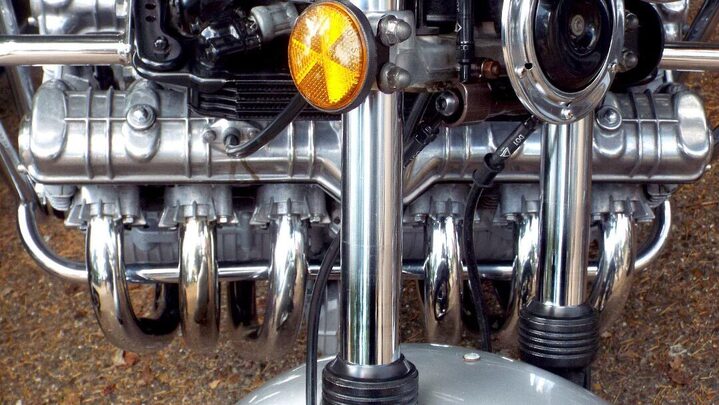Could E10 adversely affect your motorcycle engine
Have you notice any difference in your engine performance since switching to E10?
Lucy England
E10 petrol is, as it says on the tin, petrol with a permitted 10% of ethanol added to it. E5, obviously, has 5% ethanol added. Ethanol is a renewable fuel made from crops, rather than a fossil fuel distilled from excavated crude oil, the idea of adding ethanol to petrol is to reduce CO2 emissions.
When E10 was introduced the Government claimed that increasing the ethanol content in petrol from 5% to 10% would cut UK carbon emissions by up to 60%. Part of this figure comes from carbon offsetting, from growing the crops which are used to produce the ethanol. The theory being that these crops, while they are growing to provide the ethanol, are supposed to absorb CO2 as they grow (but would something else be growing in the field, if not wheat or beet for ethanol? Well probably yes, and even a fallow field full of weeds would be soaking up carbon emissions).
But - can E10 cause problems for motorcycles?
Well possibly yes. The average age for bikes in the UK is over 14 years old. When E5 first came in it was thought to be the maximum amount of ethanol that conventional petrol engines could safely take. Adding 5% more ethanol brings potential problems for older motorcycles. Even the Government itself states that vehicle compatibility could be a problem…
“…vehicle compatibility has been the main barrier to the introduction of E10 so far. Not all vehicles have been approved by their manufacturers for use with fuel with more than 5% ethanol. This is because higher blends of ethanol can cause corrosion of some rubbers and alloys used in the engine and fuel systems of some older vehicles.”
However, deciding to plough on regardless, the Government says that this problem will diminish as people get modern machines which are designed to be compatible with E10. Motorcycles don’t actually even seem to feature in the Government’s plans.
Ethanol can be a problem for bikes however, as it burns at a different air/fuel ratio than petrol. Most cars are fuel injected, have an oxygen sensor and a three-way catalytic converter which can compensate for this. Motorcycles are less likely to have these and many were made long before ethanol was even a thing fuel wise.
Ethanol also absorbs water from the air and this can lead to corrosion as it draws water into parts of the motorcycle fuel system which weren’t designed to cope with it.
One other factor which is contra indicated in the use of E10, is that ethanol itself is a solvent. Unfortunately engine components made of plastic, fibreglass and rubber can cope fine with pure petrol, but can be melted by ethanol. Many bikes have plastic fuel tanks so, as you can imagine, that could be a problem. In America, which has been using E10 for longer, some fuel tank distortion has been reported, presumably in bikes with plastic or fibreglass tanks.
Have you noticed any problems with your bike from using E10 or is there no noticeable difference that you can see? Are you in favour or not? Let us know your thoughts on Facebook or email us at [email protected].
